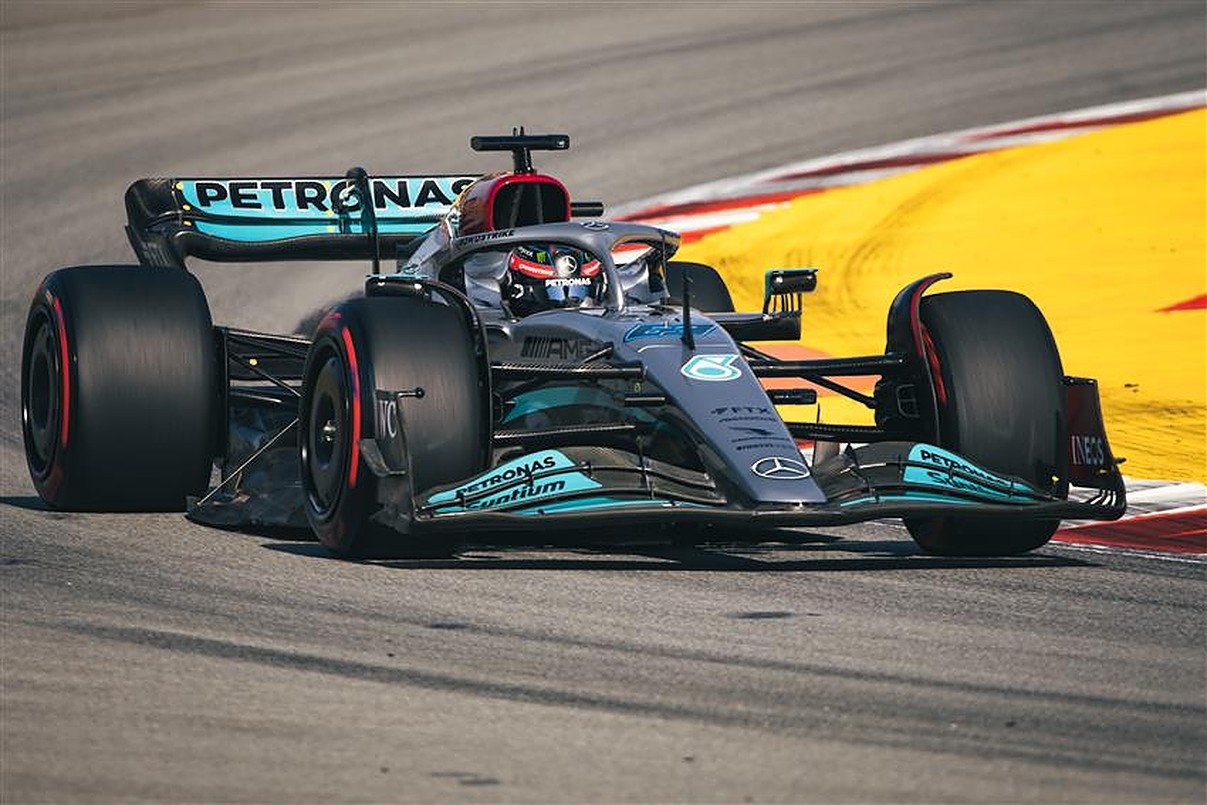Mercedes driver George Russell has waned of the possibility that the “porpoising” drivers are experiencing could eventually have a serious detrimental impact on their health.
The new technical regulations in F1 have seen the re-introduction of ground effect aerodynamics, and the subsequent lower ride height of the cars has caused heavy contract with the track surface.
The result of that is the cars vigorously bouncing up and down, and this is a phenomenon known as “porpoising.”
READ: Ferrari to gain half-a-second via Barcelona upgrades
As well as limited visibility, a loss of straight-line speed and poor handling through corners, the nauseating movement has caused aches and pains in the drivers’ backs and necks, with Russell even noting during the Emilia Romagna Grand Prix weekend that he had been feeling the impact in his chest.
The Briton remarks that the violent bouncing and shaking is a discomfort that the drivers could do without.
“When you are travelling at 200mph on the straight, and you are smashing up and down on the ground, for sure you wouldn’t choose to have it that way,” he explained.
“The cars are extremely rigid and they are not meant to be a comfortable ride.”
Research completed at the University of Glasgow in 2019 showed that 386 of 7,676 ex-professional footballers develop a neurodegenerative disease as a result of constantly heading a ball throughout their careers, while 366 of 23,038 non-footballers observed did not.
They found that footballers are 3.5 times more likely to develop dementia than non-playing people, and Russell uses this to highlight that the impact “porpoising” has on the drivers’ heads is not sustainable, and that more should be done to protect drivers in the long run.
“You could compare it to the footballers of the 60s, 70s and 80s when they had the massively heavy footballs,” he added.
“Research was done and analysis was done that there were health consequences for these chaps who headed the ball, and things were changed.
“Formula 1 is the centre of innovation and there is no reason why we cannot find a scientific solution for this.”
The 24-year-old ended FP2 in Barcelona this weekend second fastest, but having topped practice in Miami a fortnight ago and fallen back thereafter, he is keeping his expectations grounded.
“I don’t know to be honest because in Miami we were quickest on Friday and here we’re second,” explained Russell.
“Let’s see, the car’s definitely reacting differently, we’ve got different limitations this time.
READ: Wolff hoping for ‘mini milestone’ at 2022 Spanish Grand Prix
“We definitely don’t have the porpoising on the straight which is good but we’re still experiencing a little bit here and there in the corners, which ultimately you need to dial it out through the corners.
“Red Bull still look very, very strong; they look the team to be reckoned with at the moment and we need to go through the data.”

